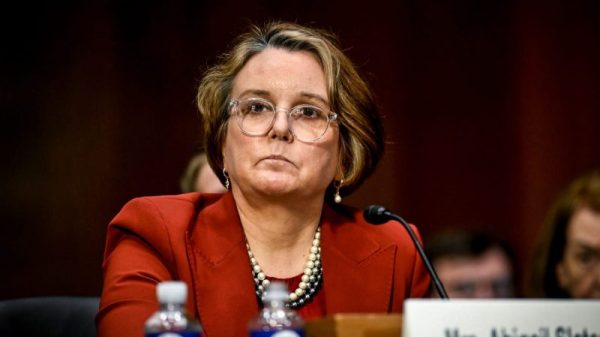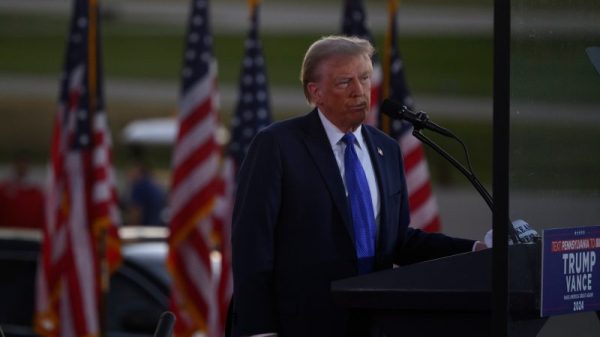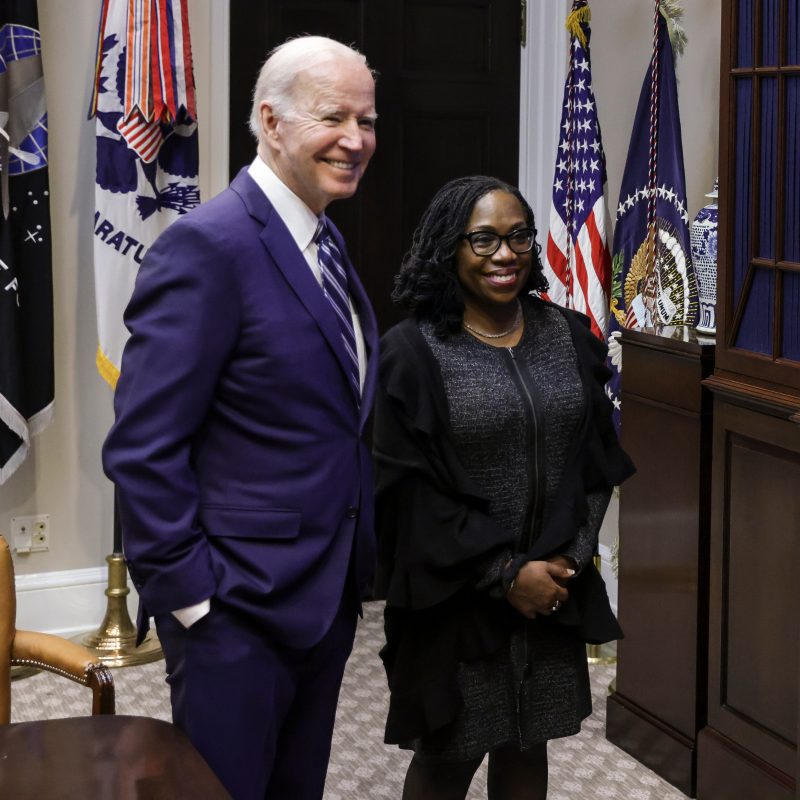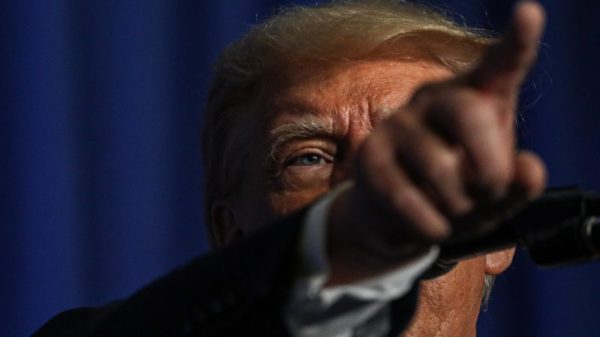President Biden is seriously considering endorsing a set of proposals that would reform the Supreme Court, including legislation to establish term limits and impose a binding code of ethics on the justices. It is a major shift for Biden, a former Senate Judiciary Committee chairman who through his long political career has generally opposed attempts to make substantive changes to the high court.
Biden is also weighing whether to call for a constitutional amendment to eliminate broad immunity for presidents and other constitutional officeholders.
Each of the proposals would face steep obstacles in a deeply divided Congress. While many Democrats and some outside experts say there is enough evidence of ethics breaches by the justices and partisan activity around the court to warrant reform, many Republicans say those critics are simply unhappy with the court’s strongly conservative decisions.
It is for that reason that retired federal judge Thomas B. Griffith, who served on a bipartisan commission appointed by Biden that studied potential changes but did not reach consensus, is skeptical.
“I’m suspicious of any efforts at so-called reform of the court that seem to be rooted and grounded in disappointment with decisions of the court,” said Griffith, a judicial appointee of President George W. Bush who emphasized that he had not seen any specific proposals Biden is considering.
Retired federal judge Nancy Gertner, who was nominated to the bench by President Bill Clinton and also sat on the commission, said it was “terribly important” for Biden to legitimize what she believes would be much-needed change.
“We have the most powerful, least accountable Supreme Court of any Western democracy,” she said. “Now it’s up to Congress to actually go forward on the reform effort. And yes, it will be difficult, and it may take multiple sessions, but it needs to begin.”
Here’s what Biden has said in the past about Supreme Court accountability and what others have proposed.
Biden in 2019: ‘We’ll live to rue that day’
Democratic calls for an overhaul reached a boiling point in 2016 after then-Senate Majority Leader Mitch McConnell (R-Ky.) refused to consider President Barack Obama’s pick to replace the late justice Antonin Scalia, citing the upcoming presidential election even though it was nearly eight months away.
The seat remained empty until President Donald Trump was inaugurated 10 months later. He nominated Neil M. Gorsuch, maintaining the court’s 5-4 conservative split.
Democrats were equally enraged when McConnell went on to push Amy Coney Barrett’s nomination through just two months before the 2020 presidential election. Biden, then the Democratic nominee, pleaded with Senate Republicans to wait until the winner of the election was inaugurated. But Barrett was confirmed as the successor to the late justice Ruth Bader Ginsburg on Oct. 26, eight days before the election, creating a 6-3 conservative supermajority.
Despite growing calls for reform from members of his party, Biden told Iowa Starting Line in 2019 that he did not support efforts to expand the Supreme Court, “because we’ll live to rue that day,” he said.
Three months later, during a Democratic primary debate, Biden said: “I would not get into court-packing. We add three justices; next time around, we lose control, they add three justices. We begin to lose any credibility the court has at all.”
He told the New York Times editorial board that he did not support term limits, either.
And he did not publicly shift from that position after Barrett’s nomination.
What other Democrats have pushed
As many as 15 other Democrats running for president in 2020 — including the current vice president, a cabinet official and two members of the Senate Judiciary Committee — either supported or said they were open to imposing term limits on the justices and expanding the court, according to a Washington Post tally that year.
Pete Buttigieg, who became Biden’s transportation secretary, backed expanding the Supreme Court from nine to 15 justices. Under that plan, Democrats and Republicans would each name five justices, and those 10 would name an additional five.
Buttigieg, the former mayor of South Bend, Ind., also expressed support for term limits.
“We need to reform the Supreme Court in a way that will strengthen its independence and restore the American people’s trust in it as a check to the Presidency and the Congress,” his campaign website said.
Sens. Cory Booker (N.J.) and Amy Klobuchar (Minn.), who oversee judicial nominations as members of the Senate Judiciary Committee, said they were open to expanding the court. But, like then-Sen. Kamala D. Harris, they didn’t get into any specifics of how they would do it. Booker and Harris also said they were open to imposing term limits.
What Biden did as president
On Oct. 22, 2020 — the same day Republican senators advanced Barrett’s nomination out of the Senate Judiciary Committee — Biden announced on CBS’s “60 Minutes” that if he were elected president he would create a bipartisan commission to study the issue of making structural changes to the court.
The commission submitted its 294-page report in December 2021. Members presented arguments for and against the proposals, including expanding the size of the Supreme Court, establishing term limits for the justices and imposing a code of conduct on the justices. The report did not take a position on those ideas but did note that “there is profound disagreement among commissioners” about court expansion.
The commission concluded that while Congress has broad authority to establish and change the size of the Supreme Court, it would be hard to ensure that the issue doesn’t become politicized.
“We were charged not with coming up with recommendations but with plumbing the issues deeply and issuing a report,” Gertner said.
Griffith, who published an op-ed in The Post shortly after the report was finalized criticizing term limits and court expansion, said the proposals that Biden is said to be considering would encroach on judicial independence. “We need to be doing everything we can to preserve judicial independence and not give in to the temptation to believe that judges are just partisans in robes,” he said. “The judiciary is, in many ways, the crown jewel of our democratic republic. … I think that’s a very dangerous path to go down.”
What Democrats in Congress have tried
Democratic lawmakers have held hearings, proposed legislation and introduced articles of impeachment that, in their view, would hold the Supreme Court accountable. None have gained support from Republicans, however, or seem likely to garner the votes needed for passage anytime soon.
In July 2023, the Senate Judiciary Committee voted along party lines to advance legislation that would impose a binding code of ethics on the nine justices. The action came after news reports revealed that Justice Clarence Thomas accepted but did not disclose decades of luxury vacations and private jet travel funded by Republican donor and Dallas billionaire Harlan Crow.
Sen. Sheldon Whitehouse (D-R.I.), the chairman of the subcommittee that oversees the federal courts, is the lead sponsor of the bill, known as the Supreme Court Ethics, Recusal and Transparency Act. It would require the court to strengthen its recusal requirements and bring its hospitality and financial disclosure rules in line with those of Congress, among other parts of government.
Whitehouse is also the lead sponsor of the Supreme Court Biennial Appointments and Term Limits Act, which would create 18-year terms, adding a new justice to the bench every two years.
Rep. Hank Johnson (D-Ga.), a ranking subcommittee member on the House Judiciary Committee, has introduced several companion bills in the House and the Judiciary Act of 2023, which would expand the Supreme Court by adding four seats.
The Judicial Ethics Enforcement Act of 2024, introduced by Rep. Melanie Stansbury (D-N.M.) in April, would authorize the creation of an inspector general’s office to investigate allegations of misconduct in the judicial branch.
On July 10, Rep. Alexandria Ocasio-Cortez (D-N.Y.) introduced articles of impeachment against Thomas and Justice Samuel A. Alito Jr., who drew headlines this spring after reports that politically charged flags were flown on his properties. Alito, who like Thomas is a staunch conservative, has said he had nothing to do with the flags and that his wife raised them.
Ocasio-Cortez said impeachment, which almost certainly will not advance, was necessary “to contain the threat this poses to our democracy and the hundreds of millions of Americans harmed by the crisis of corruption unfurling within the court.”





























